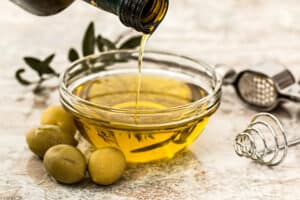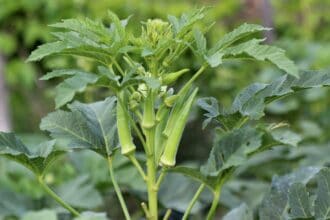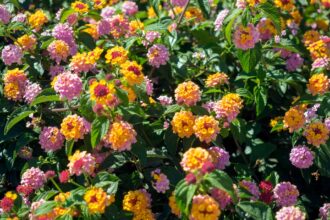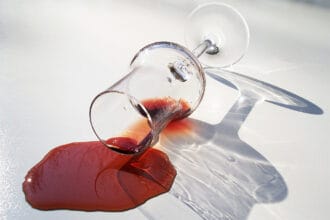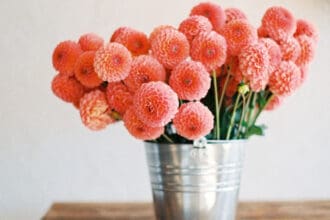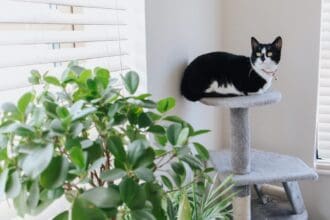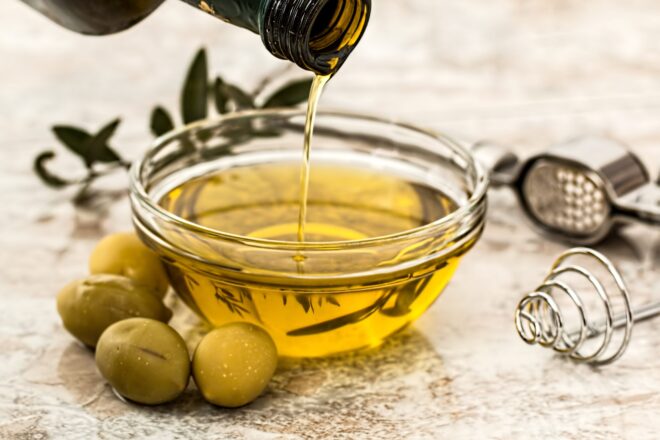
via: Pexels / Pixabay
Neem oil for house plants has been proven effective against pests and unwanted insects bothering your plants. While synthetic pesticides have been associated with several health issues and ecosystem balance problems, neem oil is proven to be safe, even to beneficial organisms surrounding your plants.
As a skilled indoor plant gardener and gardening expert featured in Constant Delights, I know how to work with pest management and find safe solutions for your plants.
Read on and keep those pesky organisms away!
Contents
What Exactly Is Neem Oil?
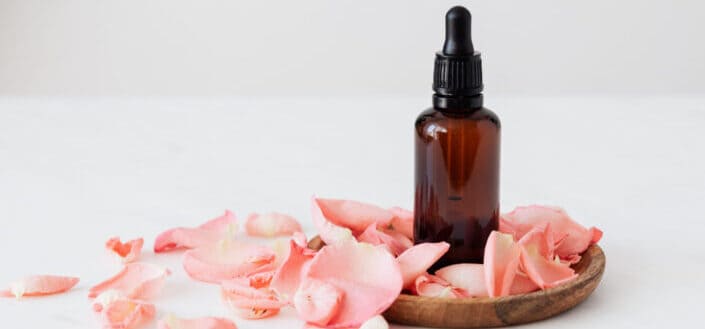
via: Pexels / Karolina Grabowska
Neem oil is a yellow-brown vegetable oil derived from the neem tree's seeds and leaves. The neem tree, Azadirachta indica, is a fast-growing species native to India and was later introduced to countries such as Africa and Central America. The oil has a bitter taste and a smell similar to garlic or sulfur. For hundreds of years, organic neem oil has been used in Ayurvedic treatments and household products because of its countless beneficial components.
5 Reasons Why You Need Neem Oil For Your House Plants
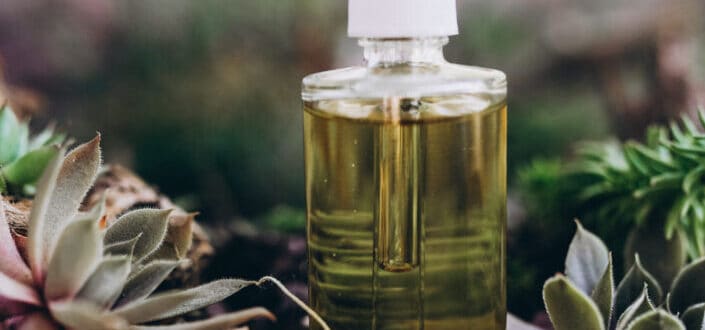
via: Pexels / PNW Production
Neem oil has been used way back in countless products, including pesticides. One of its components, Azadirachtin being the most active, has rendered the oil effective in repelling plant pests and unwanted insects.
>
Reason #1: It's great to use as a pesticide because it's safe for pets.

via: Pexels / cottonbro
Inorganic pesticides often build up in the surrounding environment. It leaves a toxic residue that is harmful to pets and other animals. If you use neem oil spray for plants, you'll be sure that it is biodegradable and non-toxic. This oil is even used as an ingredient in insecticidal soap, so it's safe for pets. There is no need to worry about your fur babies running around your garden or playing around indoor plants.
Reason #2: It doesn't create "death zones."

via: Pexels / Yuliya kota
Unlike other synthetic chemicals, neem oil insecticide doesn't create a dead zone around treated plants. It targets insects such as aphids, mealybugs, spider mites, and fungus gnats. It also works against powdery mildew and leaf spots. On the other hand, synthetic pesticides seep into other areas that kill beneficial insects and other flora species.
Reason #3: It can effectively control hundreds of insects.
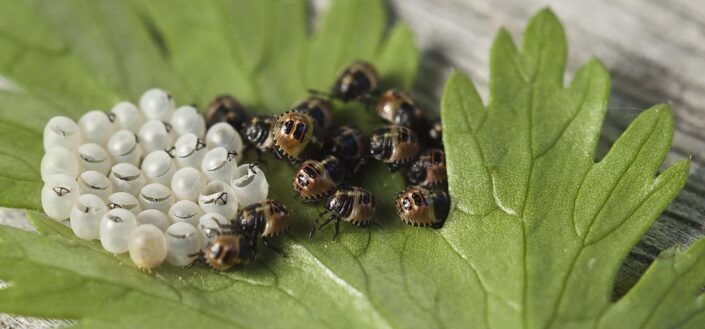
via: Pexels / Pixabay
Neem oil kills insects at all stages of development. Whether they are still growing or fully grown, the active chemical in neem oil can get rid of over 200 species. When insects come into contact with the oil, it prevents the bug from transforming into its next growth stage. It interferes with the pest's hormones making it hard for them to reproduce and lay eggs.
Reason #4: You can make a neem cake using neem oil.

via: Pexels / Yan Krukov
Why do you need a neem cake, you may ask? Neem oil is effective for pest control, but it is also a good fertilizer for your houseplant. A neem cake is made from organic manure, a byproduct of cold-pressed neem fruit and kernels. It can extend the availability of nitrogen and help control nematodes.
Reason #5: Easy to apply and can be used up until the day of harvest.

via: Pexels / Anna Tarazevich
Many pesticides can't be used during certain stages of plant growth; however, neem oil can be used throughout the planting season until the day you harvest, so your plants are never without protection.
If you're planning to become a home gardening expert, using neem oil for plants is a step in the right direction. You should already look for neem oil in your local stores with all these benefits. I promise you. It will make all the difference for your lovely plants. Who knows? You might even recommend it to your friends and family once you see its benefits.
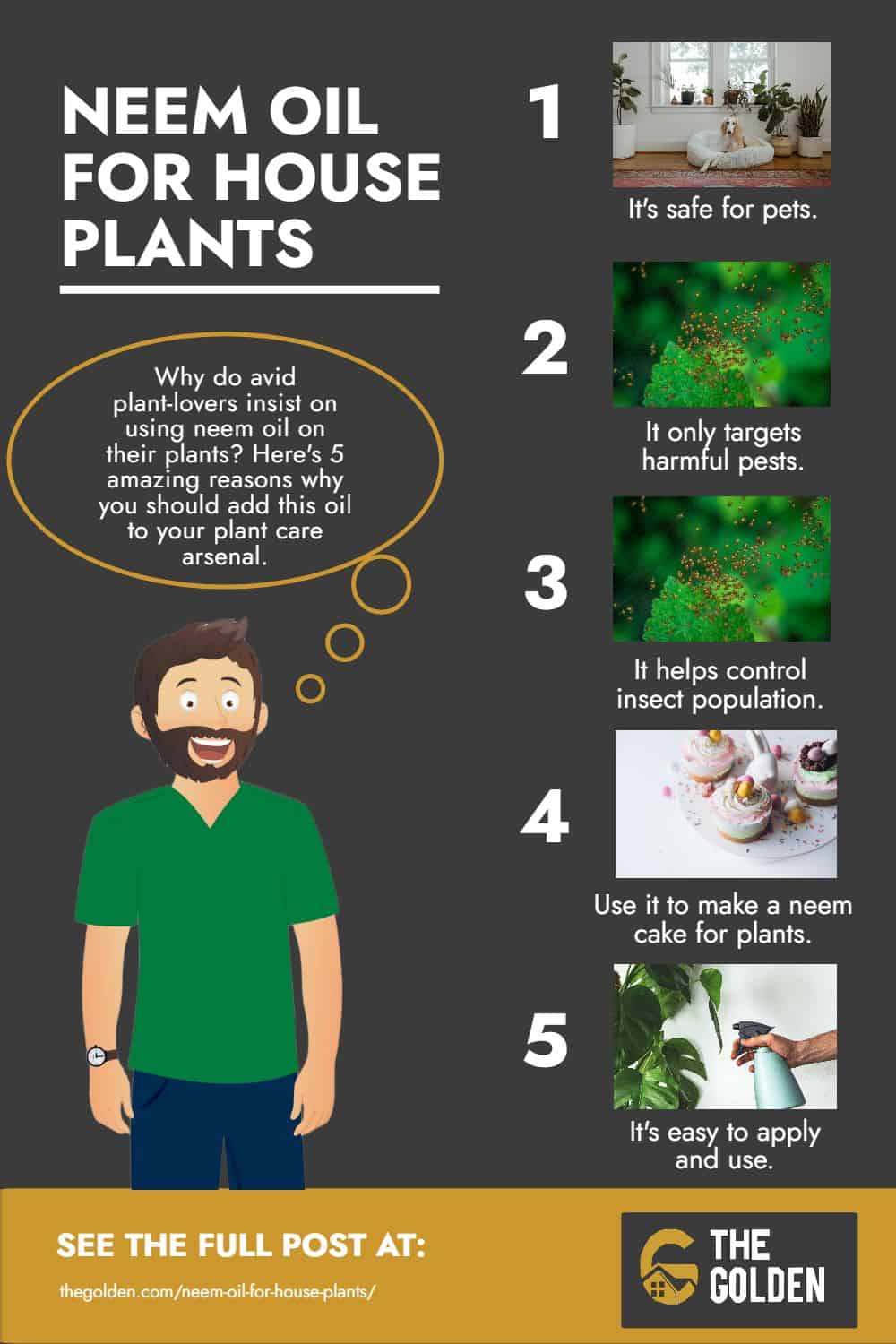
via: TheGolden
Share This Image On Your Site
5 Steps On How To Apply Neem Oil On Plants

via: Unsplash / Christin Hume
Before exposing your lovely greens to any pesticide or insecticide, it is wise to apply them properly. Ensure the well-being of your houseplants by following a guide on how to use neem oil on plants.
oil to your houseplants.
Step #1: Do a patch test.
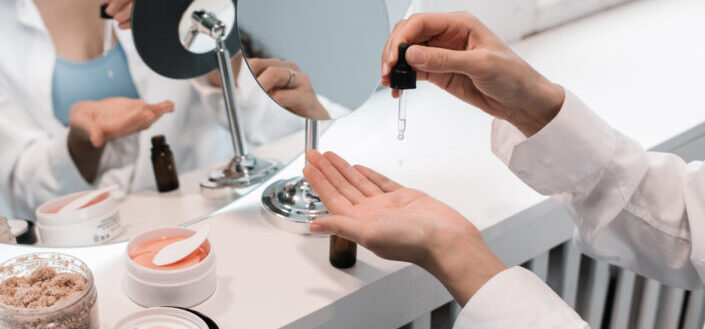
via: Pexels / Pavel Danilyuk
While neem oil is safe for your plants, some people can be allergic to the product if not used appropriately. Exposure to the oil can be irritating for the eyes and the skin. Do a test on a small patch of skin to see if you develop allergic reactions from the oil.
Just as your skin is sensitive to chemicals, plants can also be negatively affected by insecticides. Try spraying one to two plant leaves with your solution and observe what happens. If wilting and burning occur, the solution is too concentrated and needs further diluting.
Step #2: Don't drench plants.
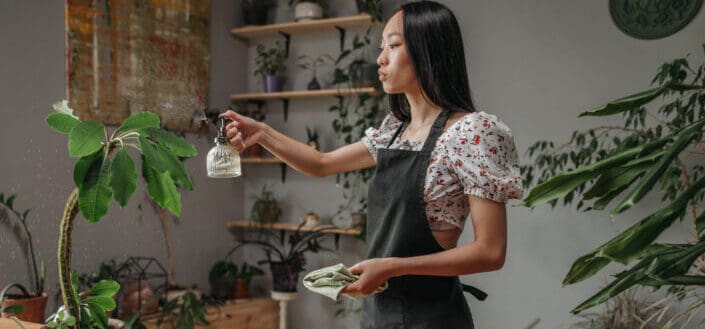
via: Pexels / ROCKETMANN TEAM
When using neem oil for plants, ensure you don't drench the entire plant with your solution. Instead, you can use soil drenching, a systemic method of using pesticides. This will help get rid of larvae and pests in your soil, such as the famous fungus gnat and other fungal diseases that can affect your houseplant's roots. The roots will absorb the solution and be distributed in the different parts of the plant. This ensures that insects and pests that consume any part of the plant will ingest the active compound in the oil that will eventually kill them. This practice is commonly done on tall plants and fruit trees.
Step #3: Avoid direct sunlight.

via: Unsplash / Adeolu Eletu
When spraying your neem oil solution, make sure you do it early in the morning or late in the afternoon. Never spray your plants during the hottest time of the day, as this can result in the burning of the foliage. Your indoor plants are safe since they do not receive direct sunlight.
Step #4: Spray on the leaves.
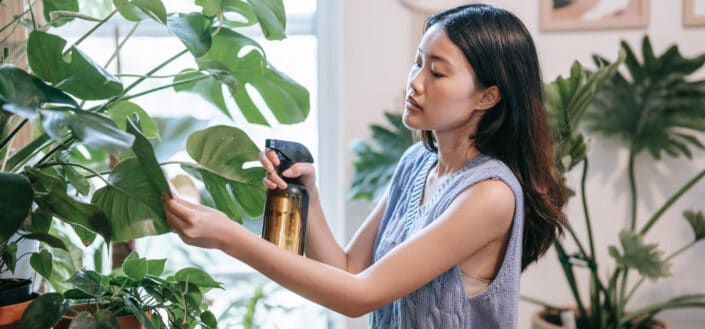
via: Pexels / Sasha Kim
Put your solution on a foliar spray bottle. Misting is the best way to use this pesticide, so do not drench the leaves with too much neem oil solution. Spray them directly on the leaves of the plants to get rid of mites and insects that can cause damage.
Step #5: Shine the leaves.
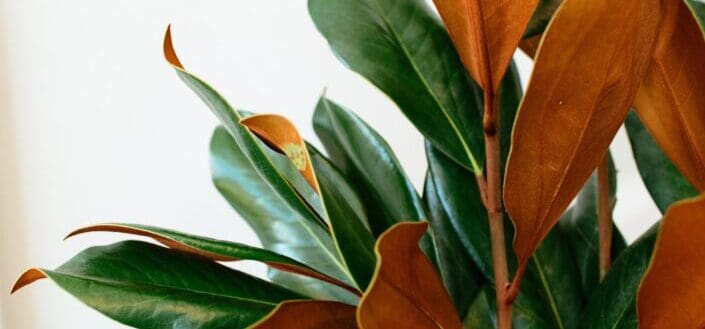
via: Unsplash / Kelly Sikkema
Neem oil is also an excellent leaf shiner. This is best used for indoor plants to clean them from dust that has accumulated on the leaves. Shining your leaves will make them look healthier and protect them from pests at the same time.
Frequently Asked Questions

via: Pexels / Edmond Dantès
If you are one of the many plant enthusiasts eager to use neem oil but still have some reservations about it, let these questions guide you.
How does neem oil affect pests?
Compounds in neem oil are known to affect pests' hormones. Once insects ingest it from feeding on leaves, it affects their reproduction and ability to lay eggs and can even interrupt the mating behavior of the organisms. It can also reduce the feeding ability of the insects. The oil is also found to coat the breathing holes of insects, eventually getting rid of them.
Can I apply neem oil for plants daily?
If there's pest infestation, you can use the oil for a few days and wait for it to take effect. After this, you can start treating your plants with your solution once a week.
What plants should you not use neem oil for?
Although neem oil can be used in most plants, it will not have much use for plants with leaves that do not have smooth surfaces. This includes plants that have fuzzy leaves or needle-like foliage. Hair-like structures in leaves prevent the oil from being distributed properly and give pests spaces to hide where the oil has not seeped in. Freshly re-potted plants are still under some stress, so it is wise not to use neem oil on them too soon.
Why are my plant leaves turning yellow after application?
When plant foliage turns yellow after you apply neem oil, this can mean that you have sprayed too much that it clogged pores that affect the respiration of plants. This will cause your plants to develop yellowish leaves and droop. This can also mean that you may have sprayed your plant under direct sunlight causing the leaves to burn.
More Awesome Articles About Plants
Plants are not only a great source of oxygen. They can be a source of happiness and a way to relieve stress. Check out these articles on plants you can have at home.
- If you are not sure what plants to grow at home, read on types of house plants to get more ideas.
- Have the right kind of plant in your backyard if you live in places with long dry spells. This drought-resistant plants article can help you.
- Furbabies and plants not getting along? Read on some pet-friendly indoor plants to have at home.
Conclusion
The use of neem oil for house plants has become a widely known solution to manage an infestation. Aside from being a natural solution against houseplant pests, this concoction is also safe for your kids and pets. If you're on board with the idea, you can start using this safe, natural pesticide to keep pests and unwanted insects at bay.


